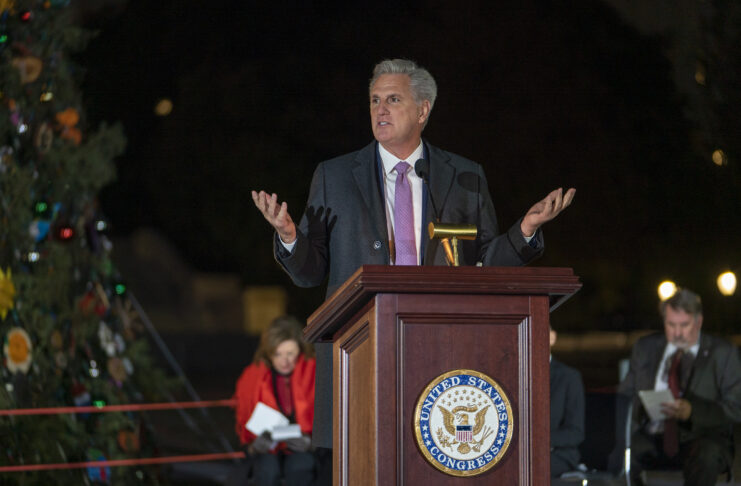Official Washington has largely ignored the debt ceiling issue, reasoning that as has always happened in the past, the two major parties will hiss and spit at one-another, then pass some sort of increase that avoids a default.
But there's always been the nagging suspicion in the credit markets and on Wall Street that this time may be different. This time, Republicans and Democrats might be so committed to their game of chicken that there might be an actual, honest-to-God default on U.S. sovereign debt.
The greatest unknown – aside from which political faction would blink first – has been exactly when the federal government would run out of cash to pay its bills.
Goldman Sachs warns that due to declining federal tax receipts – thanks to lower capital gains tax payments – the debt ceiling breach could happen as early as June. Or maybe late July. It all depends on how tax payments stack up in June when quarterly filings are due.
Either way, the clock is ticking, and the two sides, House Republicans and the Biden administration, are busy talking past each other rather than to each other.
House Republican leaders have put forward a plan that the White House, unsurprisingly, has been derided as a “ransom note” full of “wacko notions.”
In other words, the Democratic counter-offer to Republicans is: Nothing. With a heaping helping of fear, sneering, and vitriol.
The reason:
The GOP proposal would slash the federal budget back to levels adopted in the 2022 fiscal year, then cap federal agencies' future budgets at 1 percent for the next decade. In total, Republicans say this could achieve more than $3 trillion in savings, though an official score — rendered by the nonpartisan Congressional Budget Office — is unlikely to be ready before a vote.
The spending reductions probably would target federal health care, science, education, climate, energy, labor and research programs, while leaving untouched the Pentagon and services for veterans. But the bill does not specify the exact agencies or programs on the chopping block, leaving the task to lawmakers on congressional appropriations committees who craft spending bills that keep the government running and stave off a shutdown.
Rolling spending back to 2022? The horror. But in official Washington, this is a genuine horror because it would mean spending only what it spent the year before. Big government fans recoil from even the possibility of reducing the growth of the state.
Let's not forget that all of this extremely bad political theater is playing out on the most dishonest of stages. Neither major party wants to touch the biggest line items in the federal budget, Social Security and Medicare. Those are off limits, off the table, not up for discussion, move along.
No honest, adult debate over federal spending can or will occur until entitlements are at the heart of it. But as the political class is neither honest nor adult, and prefers to treat voters as potted plants, such a discussion will only occur when there's a full-blown crisis well underway.
And not just a pseudo-crisis where checks are delayed a day or a week. No, a real one where a default has occurred because, in their game of chicken, the two hissing, spitting political factions forgot to pay attention to the real world implications of their posturing.
It might come as soon as June. Maybe late July. Possibly August. The exact date is irrelevant if Democrats and Republicans keep speeding toward the cliff, instead of starting the hard, tedious, unsexy, politically dangerous, but essential work of curbing federal spending.
The opinions expressed in this article are those of the author and do not necessarily reflect the positions of American Liberty News.
READ NEXT: Store Manager Stops Armed Robbery At A Chicago


